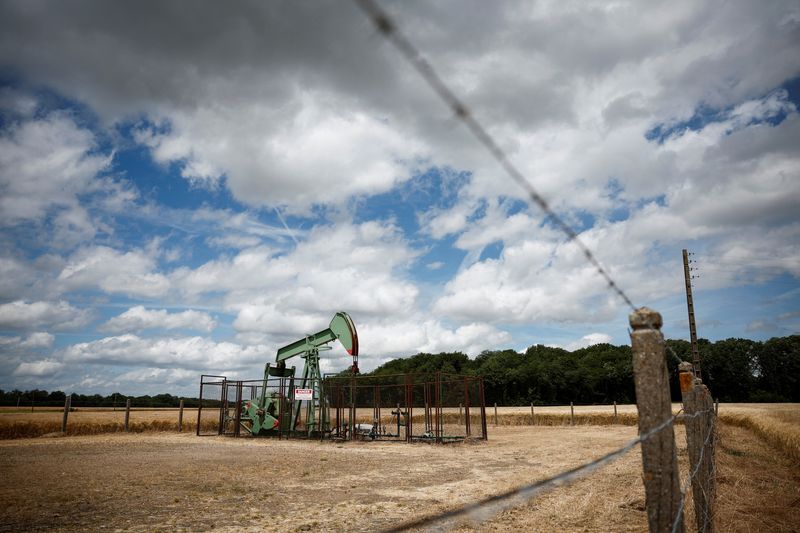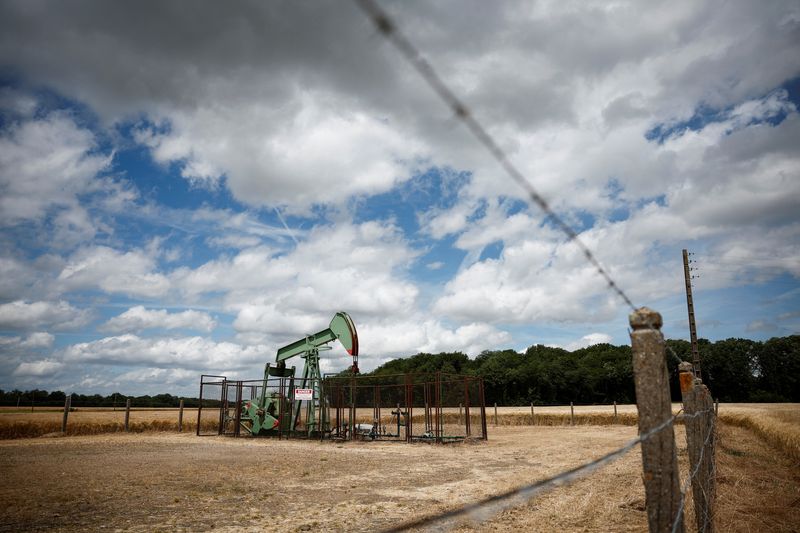Commodities
Oil prices held down by Trump tariff uncertainty

By Paul Carsten
LONDON (Reuters) -Oil prices were little changed on Thursday, maintaining the previous session’s losses on uncertainty over how U.S. President Donald Trump’s proposed tariffs and energy policies would affect global economic growth and energy demand.
futures dipped 2 cents to $78.98 a barrel by 0941 GMT. U.S. West Texas Intermediate crude (WTI) lost 4 cents to $75.40.
“Oil markets have given back some recent gains due to mixed drivers,” said Priyanka Sachdeva, senior market analyst at brokerage Phillip Nova.
“Key factors include expectations of increased U.S. production under President Trump’s pro-drilling policies and easing geopolitical stress in Gaza, lifting fears of further escalation in supply disruption from key producing regions.”
The broader economic implications of U.S. tariffs could further dampen global oil demand growth, she added.
Trump has said he would add new tariffs to his sanctions threat against Russia if the country does not make a deal to end its war in Ukraine.
He also vowed to hit the European Union with tariffs and impose 25% tariffs against Canada and Mexico. On China, Trump said his administration was discussing a 10% punitive duty because fentanyl is being sent from there to the United States.
On Monday he declared a national energy emergency intended to provide him with the authority to reduce environmental restrictions on energy infrastructure and projects and ease permitting for new transmission and pipeline infrastructure.
There will be “more potential downward choppy movement in the oil market in the near term due to the Trump administration’s lack of clarity on trade tariffs policy and impending higher oil supplies from the U.S.”, OANDA senior market analyst Kelvin Wong said in an email.

On the U.S. oil inventory front, crude stocks rose by 958,000 barrels in the week ended Jan. 17, according to sources citing American Petroleum Institute figures on Wednesday.
Gasoline inventories rose by 3.23 million barrels and distillate stocks climbed by 1.88 million barrels, they said. [API/S]
Commodities
Oil prices rise; U.S. crude inventories plunge, Russia-Ukraine truce eyed
Commodities
India’s Reliance to stop buying Venezuelan oil over US tariffs, sources say
Commodities
Oil prices climb on Venezuela supply worries

 Forex3 years ago
Forex3 years agoForex Today: the dollar is gaining strength amid gloomy sentiment at the start of the Fed’s week

 Forex3 years ago
Forex3 years agoUnbiased review of Pocket Option broker

 Forex3 years ago
Forex3 years agoDollar to pound sterling exchange rate today: Pound plummeted to its lowest since 1985

 Forex3 years ago
Forex3 years agoHow is the Australian dollar doing today?

 Cryptocurrency3 years ago
Cryptocurrency3 years agoWhat happened in the crypto market – current events today

 World3 years ago
World3 years agoWhy are modern video games an art form?

 Commodities3 years ago
Commodities3 years agoCopper continues to fall in price on expectations of lower demand in China

 Economy3 years ago
Economy3 years agoCrude oil tankers double in price due to EU anti-Russian sanctions

























